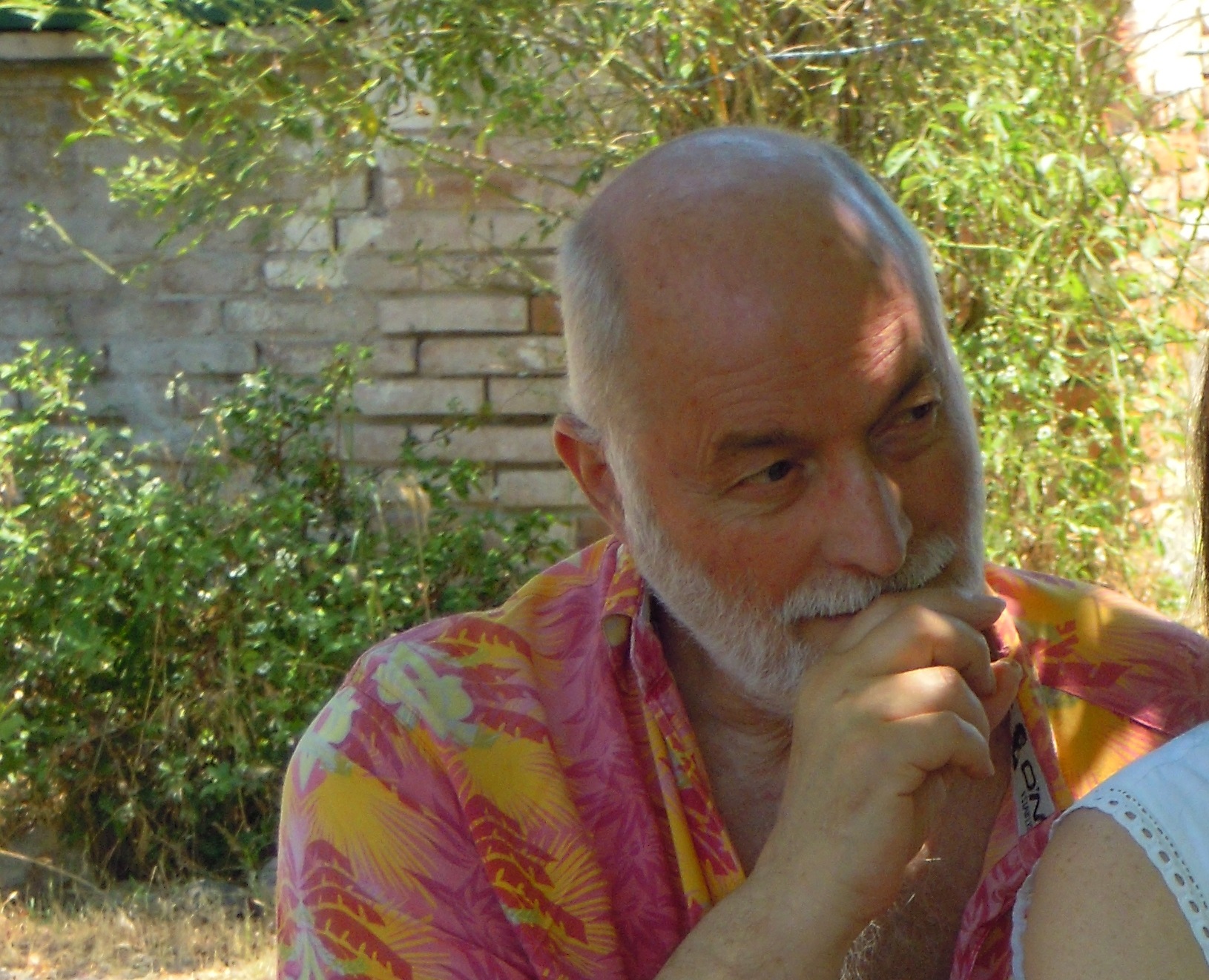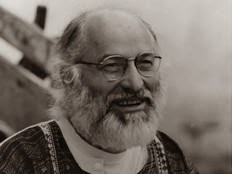Insisting too much on "theistic" values does not help the human mind to overcome patriarchal thought. We must - according to me - abandon religious speculation and return to a spirituality devoid of dogmas and not specifically linked to gender (I remember that the priesthood in monotheistic religions is precluded to women).
For goodness sake, it is also okay to do a historical analysis on the formation of Christianity and how this "Semitic" religion drew on pre-existing paganism. Among other things, the re-evaluation of paganism is one of the main characteristics not only in the New Age strand but also in serious historical research, such as that of Daniel Danielou on the myth of Dionysus-Shiva.
But we should go even further by rediscovering the most ancient cults close to our roots, namely the adoration of the Great Mother or Primordial Energy (Shakti).
Often, during the holidays we organize, especially those in conjunction with the solstices and the equinoxes or for the full and new moon, we highlight the syncretic aspects between Christianity and "neo-paganism", making them coincide with our secular spirit and sympathetic to the Spirituality of Nature.
The sacredness of nature in all its forms is one of the aspects of secular spirituality and profound ecology that distinguishes us. In fact, the spirituality of nature is an aspect recognized also in the ancient Christian faith, especially in mysticism (both in the primitive and in the Franciscan ones) in which the custom of retreating to caves, woods and deserts in close communion with natural elements prevails. with the animal world.
Pagan aspects were present even in the Jewish religion, albeit condemned, such as the adoration of the sacred cow during the crossing of the Sinai, or recognized and part of the tradition as happened to the sect of the Essenes who lived in close symbiosis with nature and with its magical aspects, having also developed the ability to draw their nourishment from the desert, a great miracle this considering that they were even vegetarians….
Respect and adoration of nature, defined by the Catholic Church (a little derogatory) "pantheism" is one of the stimuli that has always been present in man, among other things, this pantheistic feeling is the basis of the evolutionary exursus of the species.
This reminds me of a story, which I often love to tell, about the origin of the human species. It is now certain that there was a "first woman", a primordial Eva. The analysis of the female genetic heritage present in the bones proves it unequivocally...
So I imagined a woman, the first woman, who having achieved self-awareness (the most obvious characteristic of intelligence) and having only "monkeys" (such were the males at that time) had to perform a work of painstaking selection to decide with whom to mate so that you can have the best chance of genetic transmission of that evolutionary aspect. And so it happened consequently in the following generations and it is in this way that slowly from the sorting in the mating have become relevant qualities such as: sensitivity towards the habitat, empathy, patience, adaptability and kindness of the male towards the offspring and the community, etc. etc. Qualities that led the species to an "intelligent" condition that we recognize (or we would recognize if in the meantime an involutionary male chauvinist had not taken over).
Unfortunately in this historical moment, following abstraction from the vital context and the manifestation of religiosity in a metaphysical sense (projected to an afterlife and a spirit separate from matter), much of that respect (and consideration) towards nature and environment and the community has diminished, to the point that virtualization is preferred instead of the sacredness experienced in everyday life. And in this good part of the responsibility is to be attributed to the roots of monotheistic beliefs (Judaism, Christianity and Islam).
But what had been driven out of the door often falls through the window, in fact psychology is rediscovering the myths, legends and divinities of nature, describing them in the form of "archetypes".
At the beginning of human civilization, in the Paleolithic and Neolithic Matristic period, sacredness was embodied in a feminine key, then this sacredness, assumed mixed masculine and feminine forms, subsequently with patriarchal monotheisms it was the masculine which became predominant.
Now is the time to bring these energies back to their rightful place and on an equal footing. Although already in an ancient civilization, the Vedic one, this parity had been indicated, as in the case of the (male) denomination "Surya" which indicates the identity of the sun as a divine entity, which is completed by the female aspect " Savitri ”which is the radiating capacity of solar energy.
And we know that there is no difference between fire and its ability to burn ....
Paolo D’Arpini

Rete Bioregionale Italiana
Testo Italiano:
Insistere troppo su valori "teisti" non aiuta la mente umana al superamento del pensiero patriarcale. Dobbiamo -secondo me- abbandonare la speculazione religiosa e ritornare ad una spiritualità priva di dogmi e non specificatamente legata al genere (qui ricordo che il sacerdozio nelle religioni monoteiste è precluso alle donne).
Per carità, va anche bene fare un'analisi storica sulla formazione del cristianesimo e di come questa religione "semita" abbia attinto al paganesimo pre-esistente. Tra l'altro la rivalutazione del paganesimo è una delle caratteristiche portanti non solo nel filone New Age ma anche in ricerche storiche serie, come ad esempio quella di Daniel Danielou sul mito di Dioniso-Shiva.
Ma dovremmo andare anche più in là riscoprendo i culti più antichi e vicini alle nostre radici, ovvero l'adorazione della Grande Madre o Energia Primordiale (Shakti).
Spesso, durante le feste da noi organizzate, soprattutto quelle in concomitanza con i solstizi e gli equinozi o per la luna piena e nuova, mettiamo in evidenza gli aspetti sincretistici fra cristianesimo e “neo-paganesimo”, facendoli coincidere con il nostro spirito laico e simpatetico con la Spiritualità della Natura.
Ad esempio, è avvenuto che durante alcune cerimonie, già da noi predisposte, si aggiungessero riti diversi con offerte alle divinità e fate dei boschi o dei corsi d'acqua, il tutto magari collegandolo a credenze o leggende cristiane... (tanto per fare un esempio ricordo la Vigilia di San Giovanni, con il battesimo dell'acqua e del fuoco, etc.). Io lascio fare perché in fondo il riconoscere il Genius Loci e la sacralità della natura in tutte le sue forme è uno degli aspetti della spiritualità laica e dell’ecologia profonda, che ci contraddistingue.
In effetti la spiritualità della natura è un aspetto riconosciuto anche nella fede cristiana antica, soprattutto nel misticismo (sia in quello primitivo che in quello francescano) in cui prevale la consuetudine di ritirarsi in grotte, boschi e deserti in stretta comunione con gli elementi naturali e con il mondo animale.
Aspetti pagani erano presenti persino nella religione ebraica, sia pur condannati, come ad esempio l’adorazione della vacca sacra durante la traversata del Sinai, oppure riconosciuti e facenti parte della tradizione come avvenne presso la setta degli Esseni che vivevano in strettissima simbiosi con la natura e con i suoi aspetti magici, avendo essi sviluppato anche la capacità di trarre il loro nutrimento dal deserto, un grande miracolo questo considerando che erano persino vegetariani….
Il rispetto e l’adorazione della natura, definito dalla chiesa cattolica (un po’ dispregiativamente) “panteismo” è uno degli stimoli da sempre presenti nell’uomo, tra l’altro questo sentimento panteista è alla base dell’exursus evolutivo della specie.
Ciò mi fa ricordare una storiella, che amo spesso raccontare, sull’origine della specie umana. Ormai è certo che ci fu una “prima donna”, un’Eva primordiale. L’analisi del patrimonio genetico femminile presente nelle ossa lo dimostra inequivocabilmente…
Mi sono così immaginato una donna, la prima donna, che avendo raggiunto l’auto-consapevolezza (la caratteristica più evidente dell’intelligenza) ed avendo a disposizione solo “scimmie” (tali erano i maschi a quel tempo) dovette compiere una opera di selezione certosina per decidere con chi accoppiarsi in modo da poter avere le migliori chance di trasmissione genetica di quell’aspetto evolutivo. E così avvenne conseguentemente nelle generazioni successive ed è in questo modo che pian piano dalla cernita nell’accoppiamento sono divenute rilevanti qualità come: la sensibilità verso l’habitat, l’empatia, la pazienza, la capacità di adattamento e di gentilezza del maschio verso la prole e la comunità, etc. etc. Pregi che hanno portato la specie verso una condizione “intelligente” che riconosciamo (o riconosceremmo se nel frattempo non fosse subentrata una spinta maschilista involutiva).
Purtroppo in questo momento storico, in seguito all’astrazione dal contesto vitale e alla manifestazione della religiosità in senso metafisico (proiettata ad un aldilà ed ad uno spirito separato dalla materia), molto di quel rispetto (e considerazione) verso la natura e l’ambiente e la comunità è andato scemando, sino al punto che si predilige la virtualizzazione invece della sacralità vissuta nel quotidiano. Ed in questo buona parte della responsabilità è da addebitarsi al radicamento dei credo monoteisti (Ebraismo, Cristianesimo ed Islam).
Ma quello che era stato scacciato dalla porta spesso rientra dalla finestra, infatti la psicologia sta riscoprendo i miti, le leggende e le divinità della natura descrivendole in forma di “archetipi”.
All’inizio della civilizzazione umana, nel periodo paleolitico e neolitico matristico, la sacralità era incarnata massimamente in chiave femminea, poi con il riconoscimento della funzione maschile nella procreazione tale sacralità assunse forme miste maschili e femminili, successivamente con i monoteismi patriarcali fu il maschile che divenne preponderante.
Ora è tempo di riportare queste energie al loro giusto posto e su un totale piano paritario. Anche se già in una antica civiltà, quella Vedica, questa parità era stata indicata, come nel caso della denominazione (maschile) “Surya” che sta ad indicare l’identità del sole in quanto ente divino, che viene completato dall’aspetto femminile “Savitri” che è la capacità irradiativa dell’energia solare.
E noi sappiamo che fra il fuoco e la sua capacità di ardere non vi è alcuna differenza....
Paolo D’Arpini












